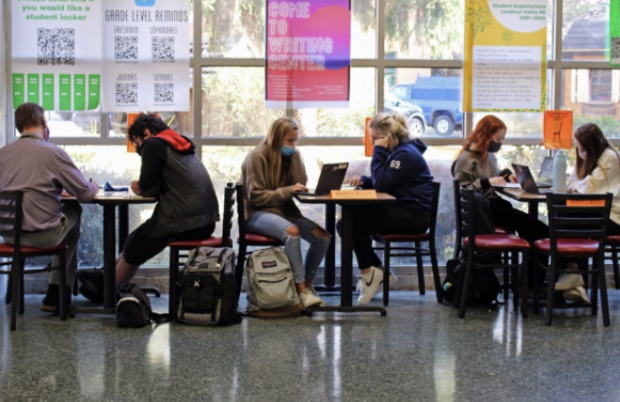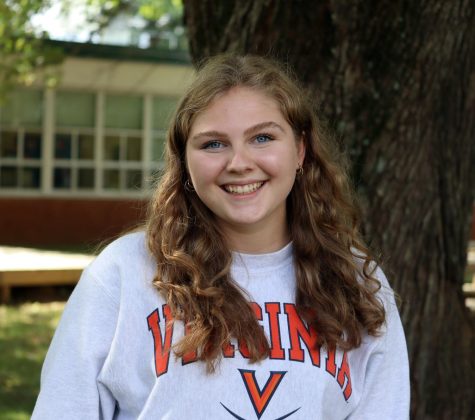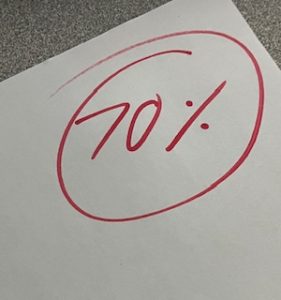Students Stare Colleges Face On, Wonder if They’re Ready
‘Students gather in mixing bowl to finish work as end of the quarter approaches’
April 2, 2022
In Oct. 2016, the LVHS class of 2023 sat down briefly to think about colleges. Now, they’re approaching applications: five years later.
But for junior Abby Hall, playing basketball in middle school has given her a heightened awareness of her future college decisions.
“Playing basketball, I started thinking about colleges earlier than other people,” Hall said. “My coaches and teammates talked about them a lot, even in middle school.”
Hall isn’t sure that all that thinking about colleges in middle school has actually done anything, either.
“When I first took the career test in sixth grade, it told me I should go into agriculture or be a farmer,” Hall said. “I want to go into the STEM field.”
The pressure to be good is familiar to college applicants: the need to have “good” grades, to pick a “good” school, have a “good” major, to be “good” at a sport or extracurricular. Essentially, the need to impress.
Senior, Rebecca Grossi, has a passion for environmental studies and is keenly aware of the pressure put on students to go to a good college.
“For a lot of people, that instinct really hones in on academic success,” Grossi said. “The whole college application process can definitely make it worse.”
“We’re told that how well we do in school and how many marvelous things we accomplish in a short, awkward, dramatic four years will have an impact on where we go to college, then on the rest of our lives.”
According to Grossi, students are more concerned about the competition and getting as far ahead as they can than learning.
Indeed, schools begin sorting their students in a competitive nature as young as third grade, where students are selected for “gifted kid” programs like Futura or Spectrum.
These programs focus on creativity, STEM and out-of-the-box thinking. While initially, they may seem helpful to gifted students, it often continues to foster a competitive nature between said students. By the time they reach high school, they often experience gifted kid burnout syndrome.
Gifted kid burnout syndrome, defined by Davidson Institute as a product of long-term stress, typically impacts the grades of former gifted students. Lack of motivation leads to procrastination, which in turn causes grades to suffer.
By the time seniors are actually filling out applications, considering schools and applying for scholarships, some wish that administration were a little more involved.
Mia Bright, a senior who committed to the University of Missouri for Health Science and Pre-Med in January, struggled with applications and felt she completed a majority of the process on her own.
“I know that they have a lot of students to talk to, but by the time counselors had asked me what my plans were, it was late October,” Bright said. “I had already found the schools I liked and filled out their applications.”
Bright is correct in saying that counselors have a lot of students to talk to. Across the US, the average student-to-counselor ratio is 482:1, according to EducationWeek So while students feel like they’re running out of time, counselors feel like they don’t quite have enough.
While the future may be uncertain for some, Grossi leaves some lasting advice for rising juniors and seniors.
“Pick what you want to prioritize. Make the decision, and don’t look back,” Grossi said. “You don’t have to know exactly what you want to do. You don’t have to know exactly what college you want to go to or exactly what you want to do with your life.”
Grossi notes that most people are uncertain about their lives this early on.
“It’s not about knowing exactly what you want to do,” she said “It’s about making a decision in the here and the now.”








